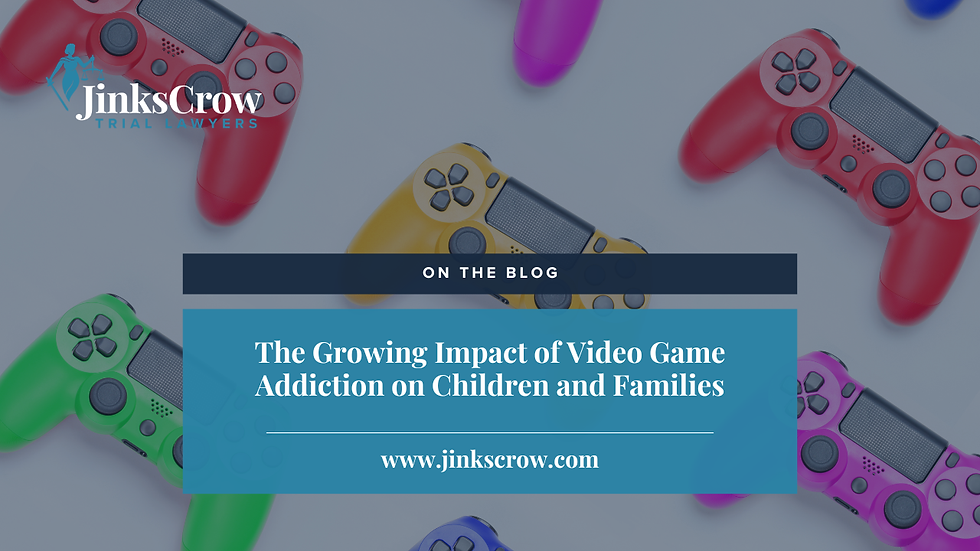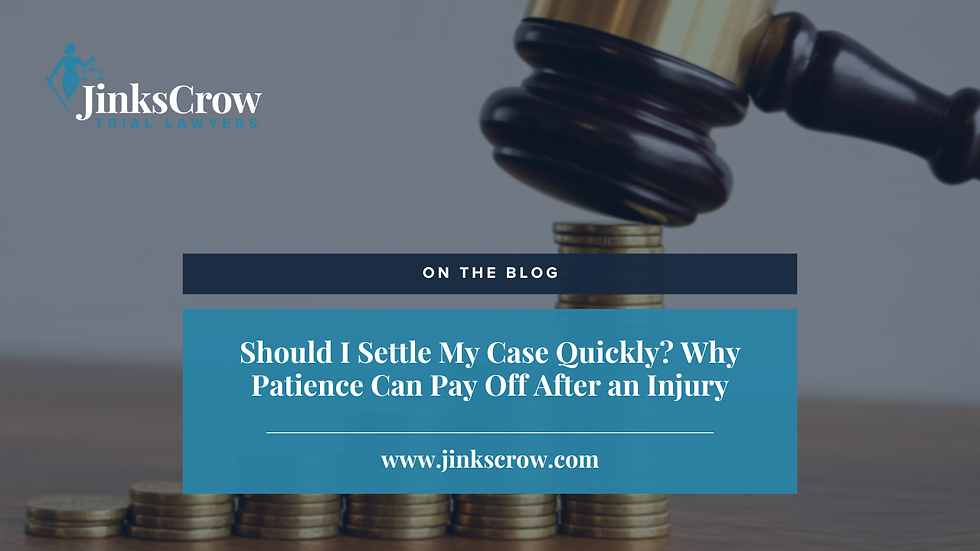What are Mass Torts?
- Jinks Crow

- Dec 28, 2021
- 3 min read

Mass tort cases involve claims by a large number of people who suffer damages as the result of some shared or common wrongdoing (negligence, fraud, product liability, etc.). As our population has grown, technology has advanced, competition in the marketplace has increased, and our disposable income has expanded, so has the need to change the way we address negligence or other torts that necessarily impact many people – consumers, purchasers, users, and those otherwise impacted.
But what about class actions? Isn’t that what they are for?
Class actions are allowed by our rules of civil procedure. They were generally created to allow people who individually might not have large damages to join together to seek compensation for the group as a whole. Under the rules, they must have suffered from a common set of facts and must share basically the same type of injury or damages. In a class action, there is a process whereby people can receive individual compensation, but that compensation must be the same as what others who are similarly situated receive. The class is represented by a class representative who pursues establishing liability and damages for the group as a whole. The lawyers are compensated based on the damages recovered for the entire group. If those affected aren’t damaged in the same way, then there can be no class action. While a class action allows for different types of damages, if the damages are wholly different or unique to each person, then there cannot be a class action. Federal law has made class actions more difficult to pursue in state courts.
Mass torts can include class actions but are much broader. There may be some people who are similarly situated who can make up a class and others whose damages are unique. Those others need to be able to recover as well. In many mass tort cases, the damages are not minimal but may involve deaths or other catastrophic injuries.
By working together, the attorneys for those injured or damaged can pool their resources to take on the large corporate conglomerates who often commit mass torts. This allows the claimants’ attorneys, working together, to review the massive amount of data generated in the design, testing, and manufacture of products today. It also allows hiring the right experts who help determine and prove how the damage or injuries occurred. Courts can more effectively manage what would otherwise be thousands of individual lawsuits.
There are new mass torts emerging every day. They can arise from fraud, negligence, defective products, environmental contamination, or intentional conduct. Our mass tort lawyers have seen them involving consumer products, medical devices, pharmaceuticals, farming, automobiles, trucks, financial products and services, insurance, banking, and workplace exposures. We routinely work with other lawyers on mass tort cases.
Currently, we are working on cases involving:
Toxic baby formula litigation that causes infants to develop necrotizing enterocolitis
Sexual abuse claims against the Catholic Church
Improper insurance charges by non-standard insurers
%20Proof%20%235.png)



Comments